The Office of the Provost has announced the promotion of several faculty members to full professor effect the fall 2022 semester.
Seema Bharathan
Biology
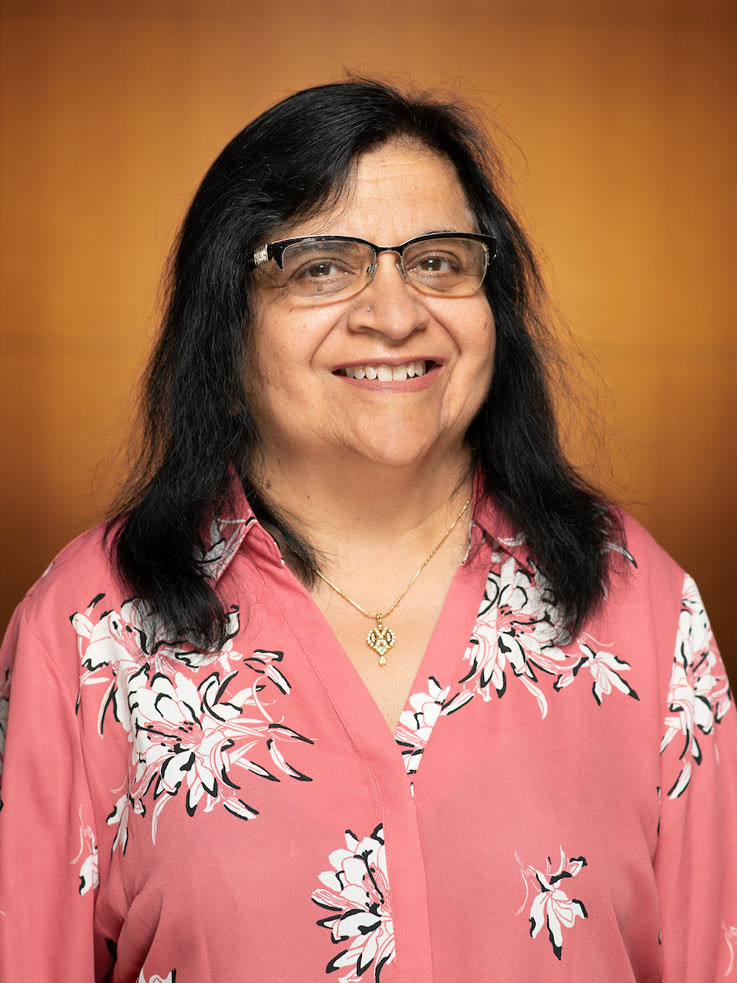 My professional training during my PhD from the University of Maine and post-doctorate research associate from the University of Miami School of Medicine was in the field of biological sciences with specializations in molecular biology and biochemistry. Teaching biological sciences is a “piece of a puzzle” that always leads to several other unanswered questions. This to me is my favorite part of teaching that leads to a student question for which I do not have an answer. When I first began my teaching career at Indiana University of Pennsylvania, I modeled my teaching philosophy around the professors I worked for. I was inspired by their thought-provoking, student-centric approach to their role as a teacher. This laid the foundation of the true purpose for what it means to be a professor for me. Since then, I have spent my entire career building upon these ideals.
My professional training during my PhD from the University of Maine and post-doctorate research associate from the University of Miami School of Medicine was in the field of biological sciences with specializations in molecular biology and biochemistry. Teaching biological sciences is a “piece of a puzzle” that always leads to several other unanswered questions. This to me is my favorite part of teaching that leads to a student question for which I do not have an answer. When I first began my teaching career at Indiana University of Pennsylvania, I modeled my teaching philosophy around the professors I worked for. I was inspired by their thought-provoking, student-centric approach to their role as a teacher. This laid the foundation of the true purpose for what it means to be a professor for me. Since then, I have spent my entire career building upon these ideals.
My scholarly activity is particularly centered around two broad areas of basic and applied research: dancer and microbial forensics. I received several federal appropriations which were funded by the Department of Defense and helped to develop the Microbial Forensic Biodefense laboratory, which is now being used for teaching and research, here at IUP. I have continued my efforts to actively engage students in meaningful learning while serving as a model mentor through my willingness to collaborate with students and colleagues. I have tried my best the integration of teaching, research, and service through critical perspectives and long-term collaborations at departmental, college, and international levels.
My contributions to the IUP community have been rewarding, and I look forward to continuing with an excellent record of teaching effectiveness to promote student success. I care for my students and have placed them in the shoes of my own two lovely daughters, one of whom is a successful physician and the other pursuing her studies in the medical field.
Yongtao Cao
Mathematical and Computer Sciences
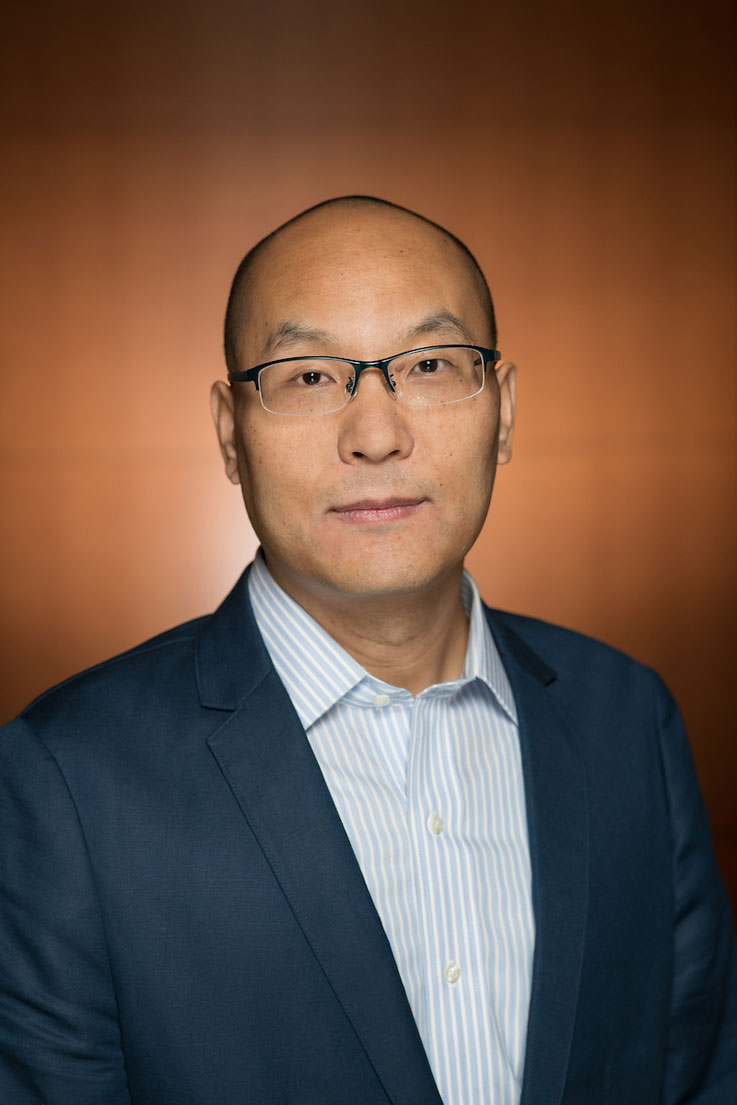 My educational background includes a BA and MA in economics and an MS and PhD in statistics. So basically, I was trained for longer than a decade on how to understand and make use of data efficiently and effectively. When I joined the IUP faculty in 2014, I was fortunate to expand my research and teaching interests from only statistics into the area of data science, where the emphasis is on science, not just on data!
My educational background includes a BA and MA in economics and an MS and PhD in statistics. So basically, I was trained for longer than a decade on how to understand and make use of data efficiently and effectively. When I joined the IUP faculty in 2014, I was fortunate to expand my research and teaching interests from only statistics into the area of data science, where the emphasis is on science, not just on data!
As a researcher and practitioner in data science, I have been involved in numerous research projects with collaborators from the areas of health and medical science, environmental science, computer science, and education, among others. The results of my research activities were not only published in papers and presented at international conferences but also were used as up-to-date resources for my courses.
Currently, I am working on the development of a robust wastewater-based machine learning framework for nowcast and forecast COVID-19 cases and hospitalizations. Our results show that SARS-CoV-2 concentrations could provide a better estimation for COVID-19 community prevalence than simply using the reported cases. This study is based on a collaboration between IUP, Indiana Borough, and IRMC, where the goal is to provide better pandemic management for our local community as well as for western Pennsylvania, especially the rural area. Another research trend that I am currently developing is quantum computation and the interplay between quantum computation and data science.
As an educator in data science, I am happy to be involved in shaping the guidelines for training undergraduate students in data science at IUP. I look forward to continuing to share my enthusiasm for data science education at IUP.
Annah Hill
Communications Disorders, Special Education, and Disability Services
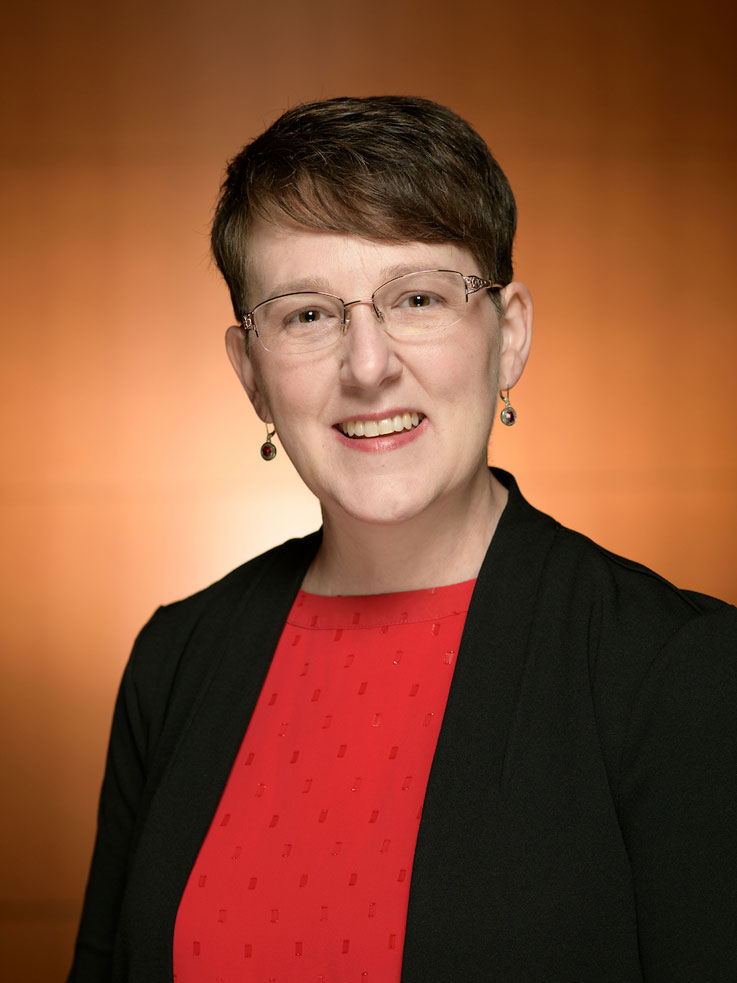 As the president of the Homer-Center High School Sign Language Club (1995-97) and interacting with IUP faculty and the IUP performance group, SignIn’, I knew that becoming a professor was my goal. Acceptance in the IUP Deaf Education (EDHL) program set me on my path; I now have my brass ring.
As the president of the Homer-Center High School Sign Language Club (1995-97) and interacting with IUP faculty and the IUP performance group, SignIn’, I knew that becoming a professor was my goal. Acceptance in the IUP Deaf Education (EDHL) program set me on my path; I now have my brass ring.
I will never forget the IUP faculty, staff, and maintenance personnel who guided me as I studied for my undergraduate EDHL degree (2001). My student worker position enabled me to develop communication and organizational skills and observe the ins and outs of higher education. Upon graduation, I worked at Allegheny Intermediate Unit 3 as a hearing support itinerant teacher and pursued both my master’s in deaf education and reading specialist certification at the University of Pittsburgh (2005).
In 2008 I was delighted to be welcomed back to IUP as adjunct faculty. Inspired by students, colleagues, and other IUP personnel, I expanded my areas of expertise and obtained my doctor of education in curriculum and instruction (2013), special education certification (2013), and certification in teaching English as a second language (2014). IUP afforded me the opportunity to utilize these credentials throughout my career. My leadership skills led me to an assistant chairperson position, and I am pleased to continue to support the IUP community, while also reaching local, state, and international audiences through my scholarship.
I work closely with Arc of Indiana County and Arc of Pennsylvania to improve the quality of life for individuals with complex needs and the deaf community. My research interests expanded from transition planning, self-determination, and self-advocacy to supporting others’ mental well-being with a focus on diversity and inclusion.
I am grateful to my husband and three daughters, my family, friends, and colleagues who supported me through my journey to “professor”; it has been uniquely fulfilling. I am blessed to have a network of diverse individuals with whom I continue to collaborate to support my passions.
Pao Ying Hsiao
Food and Nutrition
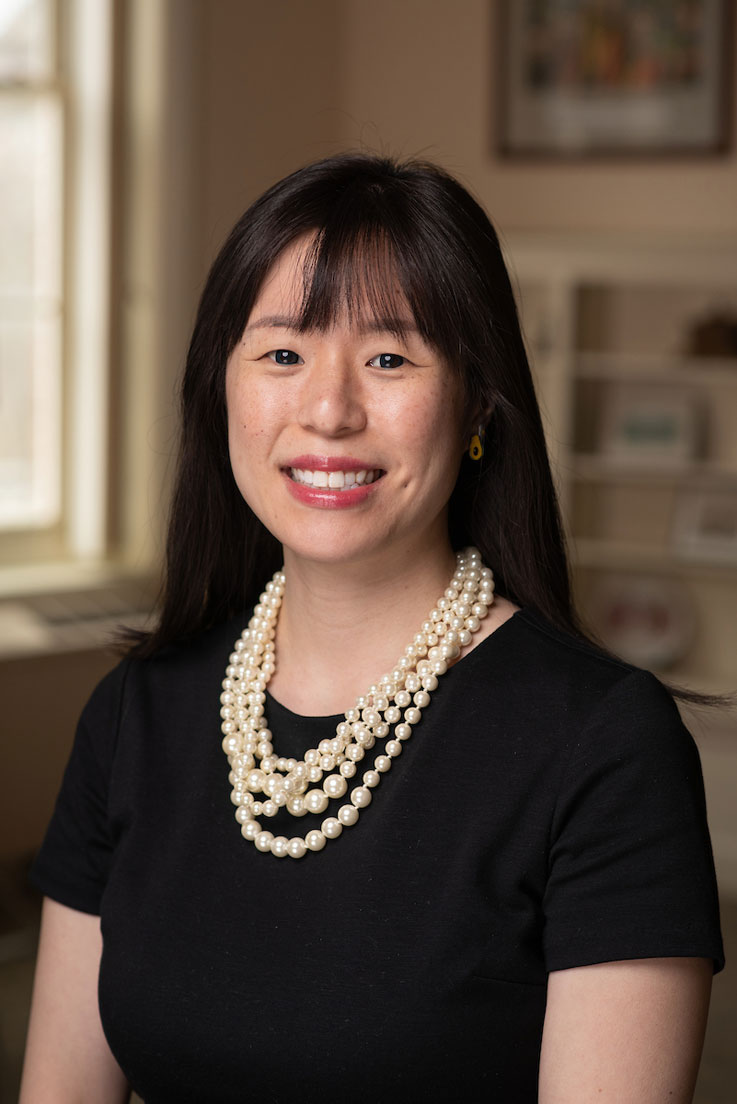 “The ideal form of work feels like play, but still accomplishes something useful and valuable. Joyful for you. Helpful to others.” (James Clear)
“The ideal form of work feels like play, but still accomplishes something useful and valuable. Joyful for you. Helpful to others.” (James Clear)
As a faculty member in the Department of Food and Nutrition, while it is important that I teach my students about the subject of nutrition, ultimately there are two principles that I try to weave into all my teachings.
You know you’ve made it in life when you find a job where you forget you are getting paid. It’s important to figure out something to do in life that you love so much, you would do it for free. Teaching nutrition at IUP has allowed me to fulfill my lifelong appetite for learning. Every day, as I step into the classroom, I learn alongside my students. I have opportunities to contribute to my field through research. I interact with colleagues who are equally passionate about helping students become their best.
To change your life, change your mindset and rephase from “I have to” to “I get to.” I get to teach a classroom full of students who are on a journey to figure out what it is that they want out of life. I get to keep up with the latest science so I can help my students translate and apply it. I get to participate in campus activities to brainstorm how to improve our workplace for faculty, staff, and students. This mindset has helped me to add meaning and be grateful for the role that I play at IUP.
Similar truths, reminders, and encouragements have been shared with me to help me get to this place of achievement in my professional career. Heartfelt thanks to my husband, who has simultaneously been my biggest cheerleader and critic and always finds the time to make me a snack when I’m up working late; my supportive department and college, and the numerous mentors who have always believed in me even when I didn’t.
Avijita Jain
Chemistry, Biochemistry, Physics, and Engineering
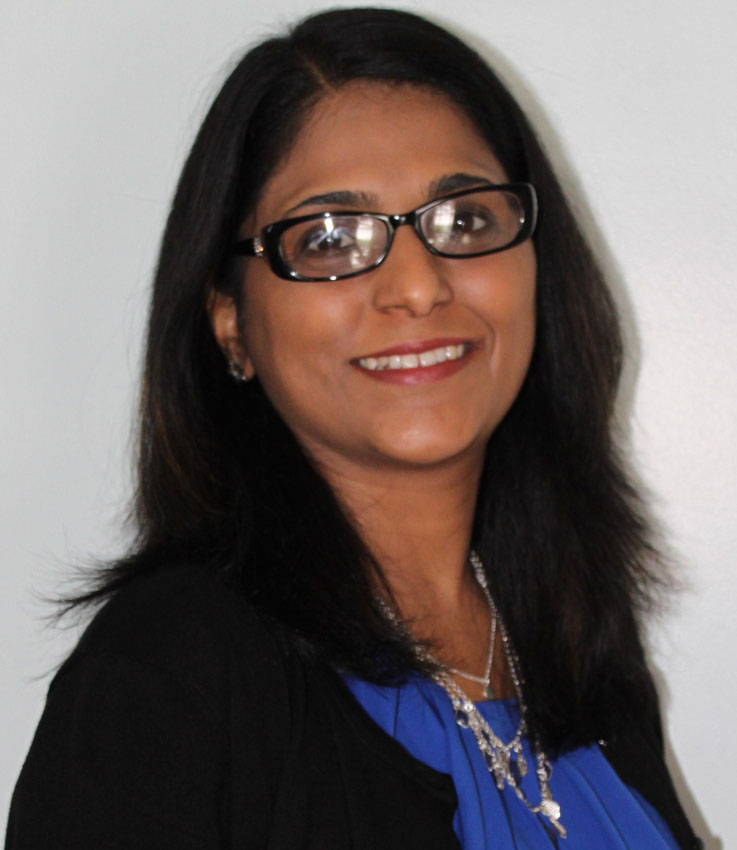 I have been fascinated by chemistry since high school because chemistry is like solving puzzles to understand the world around you. I graduated from Virginia Tech with a PhD in chemistry in December 2008. At Virginia Tech, I was involved in multidisciplinary research, working with the professors in the departments of Chemistry, Biological Sciences, and Veterinary Sciences. I studied the impact of ligand modifications on spectroscopic and bioactivity of anticancer ruthenium-platinum complexes. For my graduate research work, I was awarded the Best Graduate Research Award.
I have been fascinated by chemistry since high school because chemistry is like solving puzzles to understand the world around you. I graduated from Virginia Tech with a PhD in chemistry in December 2008. At Virginia Tech, I was involved in multidisciplinary research, working with the professors in the departments of Chemistry, Biological Sciences, and Veterinary Sciences. I studied the impact of ligand modifications on spectroscopic and bioactivity of anticancer ruthenium-platinum complexes. For my graduate research work, I was awarded the Best Graduate Research Award.
After graduation, I joined the Pacific Northwest National Laboratory, where I collaborated with protein chemists and organometallic chemists to understand the role of outer coordination sphere on the rate of hydrogen production by Ni-phosphine complexes.
In 2012, I was appointed as an assistant professor in the Department of Chemistry at IUP. I’ve been enjoying teaching and research at IUP since then. At IUP, my research involves the development of photoactive metal complexes with applications as anticancer and antimicrobial agents. As a mentor and researcher, I find that I am always learning as I am constantly challenged to come up with new ideas, which for me is an exciting outcome of my job. I believe that teaching is a never-ending professional development journey in which one continuously learns and grows each day, and I look forward to continuing to learn and grow as a teacher in the years to come.
Shijuan Liu
Foreign Languages
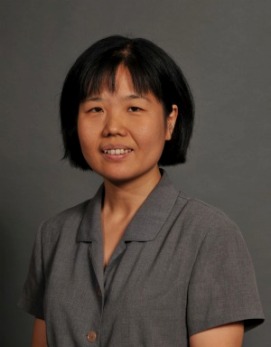 学而不厌 (never satiated with learning),诲人不倦 (never tired of teaching). I find these two idioms coined by Confucius well describe me as a lifelong learner and a passionate educator. I came to the United States in 2001 to pursue a doctorate at Indiana University at Bloomington. It was a difficult decision because I had to resign from the permanent faculty position that I liked and held for five years, teaching the Chinese language to students from all over the world at Renmin University of China, Beijing. Completing a doctorate in instructional systems technology in the US suited my desire for learning new knowledge/skills and improving as a teacher with international experience.
学而不厌 (never satiated with learning),诲人不倦 (never tired of teaching). I find these two idioms coined by Confucius well describe me as a lifelong learner and a passionate educator. I came to the United States in 2001 to pursue a doctorate at Indiana University at Bloomington. It was a difficult decision because I had to resign from the permanent faculty position that I liked and held for five years, teaching the Chinese language to students from all over the world at Renmin University of China, Beijing. Completing a doctorate in instructional systems technology in the US suited my desire for learning new knowledge/skills and improving as a teacher with international experience.
I joined IUP in 2011, after teaching at Cal State LA and Northwestern University. Helping students learn and teaching them effectively has been always the center of my work. I use various instructional strategies to meet individual student needs. I received the Content Pedagogy Award from IUP’s Center for Teaching Excellence, and the national Award for Innovative Excellence in the Teaching of Chinese as a Foreign Language from the Chinese Language Teachers Association, USA. I am equally proud of my students’ achievements (e.g., the Fulbright scholarships and promising jobs). I have been invited to give speeches and workshops on teaching with technologies nationally and internationally (e.g., Japan, Spain, UK). In the past 11 years, I provided 62 presentations/workshops (22 invited), published 25 articles (including 11 journal articles and seven book chapters), completed 12 funded projects, and edited five international conference proceedings.
I agree with what Mencius said, 独乐乐不如众乐乐 (It is more joyful to share the joy than enjoy alone). I have organized numerous community-wide activities to share my heritage language and culture at IUP. I recently edited two books (both published) involving 53 authors from five continents on their experience of teaching Chinese remotely during the pandemic.
David Myers
Counseling Center
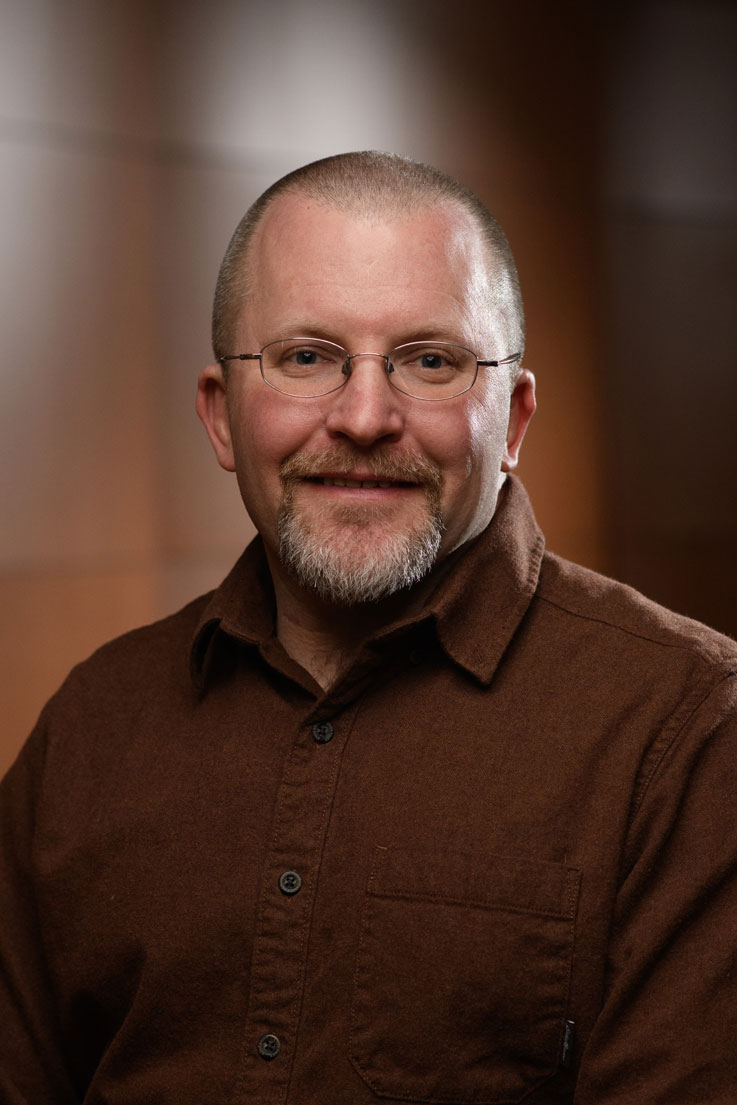 Back in 1993 when I was a freshman at Penn State Altoona, I decided to major in psychology, sometime after I figured out where my jogging class actually met—it was a lonely first class! I was frankly surprised that I was passing college classes at the time. I went on to have dreams that I needed to retake Psych 101. I was equally surprised to get into a master’s program at Edinboro University (in Pennsylvania, not Scotland) and later a PhD program at Penn State. My imposter syndrome flourished in graduate school waiting for someone to find out that I did not belong. Nevertheless, I went on to become a psychologist.
Back in 1993 when I was a freshman at Penn State Altoona, I decided to major in psychology, sometime after I figured out where my jogging class actually met—it was a lonely first class! I was frankly surprised that I was passing college classes at the time. I went on to have dreams that I needed to retake Psych 101. I was equally surprised to get into a master’s program at Edinboro University (in Pennsylvania, not Scotland) and later a PhD program at Penn State. My imposter syndrome flourished in graduate school waiting for someone to find out that I did not belong. Nevertheless, I went on to become a psychologist.
In 2006 I found a professional and academic home at IUP (again in Pennsylvania and not in Indiana). I have an abiding passion for clinical work. Many of the stories I hear as a psychologist illustrate the worst of humanity: neglect, abuse of all kinds, and broad suffering. Working with my clients, however, brings me in contact with the best of humanity. I am regularly humbled by the strength and tenacity of my clients. I’ve also been able to connect with students through teaching in the Psychology Department. I am energized by students striving to push the bounds of convention. Being a part of this striving in therapy and teaching makes my work not seem so much like work. If I won the lottery tomorrow (which would be remarkable since I do not play), I would keep doing therapy and teaching.
As I enter my seventeenth year at IUP, I cannot help but be extremely grateful for all the meaningful experiences and relationships I have had along the way. Being promoted to professor is a major milestone in my career for sure. Now if I could only find a way around that recurring dream about having to retake Psych 101!
Vicky Ortiz
Communications Media
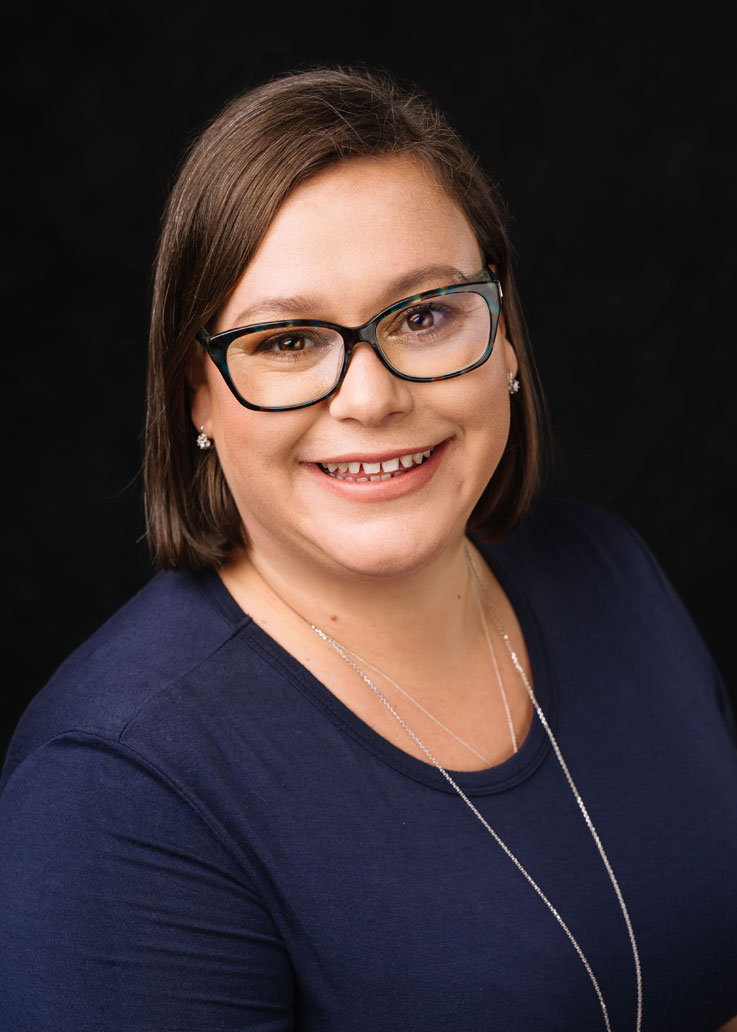 I knew a few things about my future when people asked me as a kid what I would become: one, I was not going to be a teacher, and two, I was going to be a doctor. I sort of got it right. I was the college student who switched majors several times. I loved college. I loved learning. I just wasn’t ready to commit to a career. Then, I found the communication department at Purdue University and decide to become a professional student. I loved studying communication because it gave me the flexibility to study whatever I thought was interesting at the time. They apparently loved me, too, because they paid for me to go to school. All I had to do was teach a few classes. What?!
I knew a few things about my future when people asked me as a kid what I would become: one, I was not going to be a teacher, and two, I was going to be a doctor. I sort of got it right. I was the college student who switched majors several times. I loved college. I loved learning. I just wasn’t ready to commit to a career. Then, I found the communication department at Purdue University and decide to become a professional student. I loved studying communication because it gave me the flexibility to study whatever I thought was interesting at the time. They apparently loved me, too, because they paid for me to go to school. All I had to do was teach a few classes. What?!
I can’t say that I wanted to become a professor after my first day as a teaching assistant, but I can say that I loved teaching and being around students after the first semester. My approach to pedagogy was and is—learn something, be there for someone, remember what it was like, and encourage students. I love having a huge classroom full of students with no idea what they are in for. I love learning with them. I love learning from them. I love remembering what it was like to be a young college student—the fear, the excitement, the dread, the possibility. I love observing people, and my curiosity of people pushes me along as a teacher and as a researcher.
My research is really propelled by my love for talking to people and finding out how they understand communication and society. Right now, I’m obsessed with learning about how women use pregnancy app chat functions to find social support. Isn’t that so cool? Pregnant women are getting social support—something reserved for loved ones—from strangers!
Hans Pedersen
Philosophy and Religious Studies
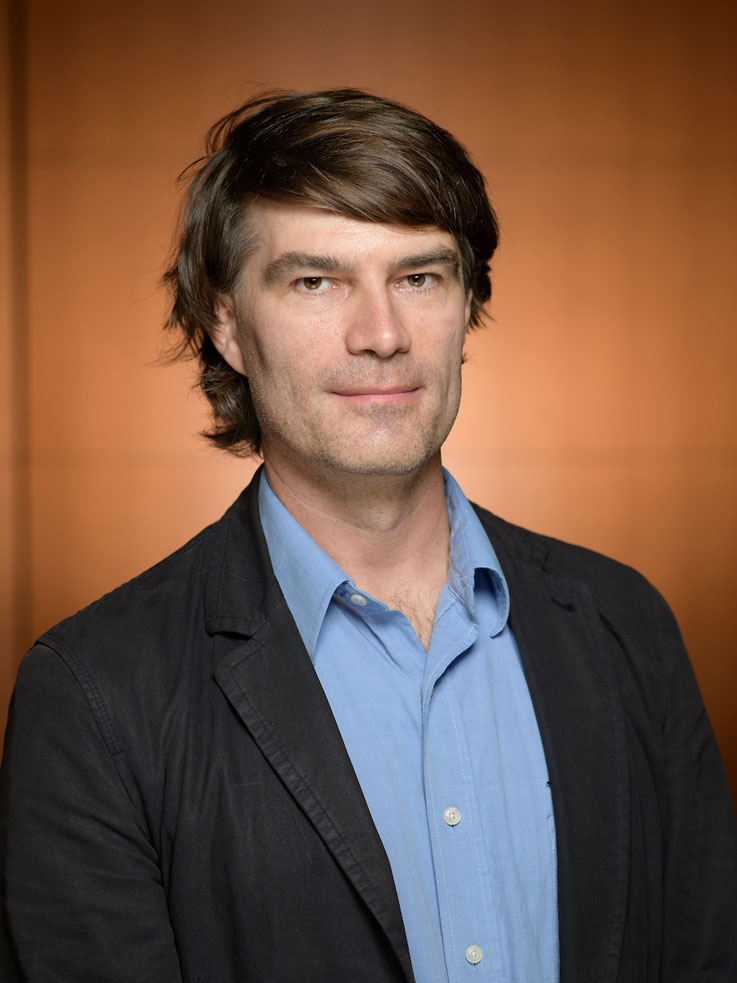 When I was in first grade, I tried to convince my mom to let me stay home from school one day. As I remember it, my argument went something like this: I have to go to school so that I can get a job. I have to get a job so that I can make money. I have to make money so that I don’t die. But if we all die in the end anyhow, what is the point? My mom wasn’t convinced by my argument and still made me go to school that day. I continued asking these sorts of questions all the way until I got to college without realizing that there was a separate academic discipline called philosophy and that I could focus on this in my studies. Once I learned what philosophy was, I realized that I had been a philosopher all along.
When I was in first grade, I tried to convince my mom to let me stay home from school one day. As I remember it, my argument went something like this: I have to go to school so that I can get a job. I have to get a job so that I can make money. I have to make money so that I don’t die. But if we all die in the end anyhow, what is the point? My mom wasn’t convinced by my argument and still made me go to school that day. I continued asking these sorts of questions all the way until I got to college without realizing that there was a separate academic discipline called philosophy and that I could focus on this in my studies. Once I learned what philosophy was, I realized that I had been a philosopher all along.
I am grateful to IUP for giving me the opportunity to do philosophy for a living, an opportunity that very few people get. My research generally focuses on the philosophical movements of existentialism and phenomenology, associated with a loosely connected group of European thinkers from the nineteenth and twentieth centuries who were broadly concerned with how to deal with the growing sense of the meaningless of our existence in a world where traditional religious beliefs are on the decline, and the rise of capitalism and modern science further diminishes the ability to think that any individual life has some greater meaning.
My teaching also reflects this concern as I try to explore issues like the meaning of freedom, the way technology shapes our existence, and what it means to live a good life in this strange world we’ve been thrown into. I am lucky to have had many rewarding conversations about these issues with students and colleagues in my years at IUP and hope to have many more going forward.
Christina Ruby
Biology
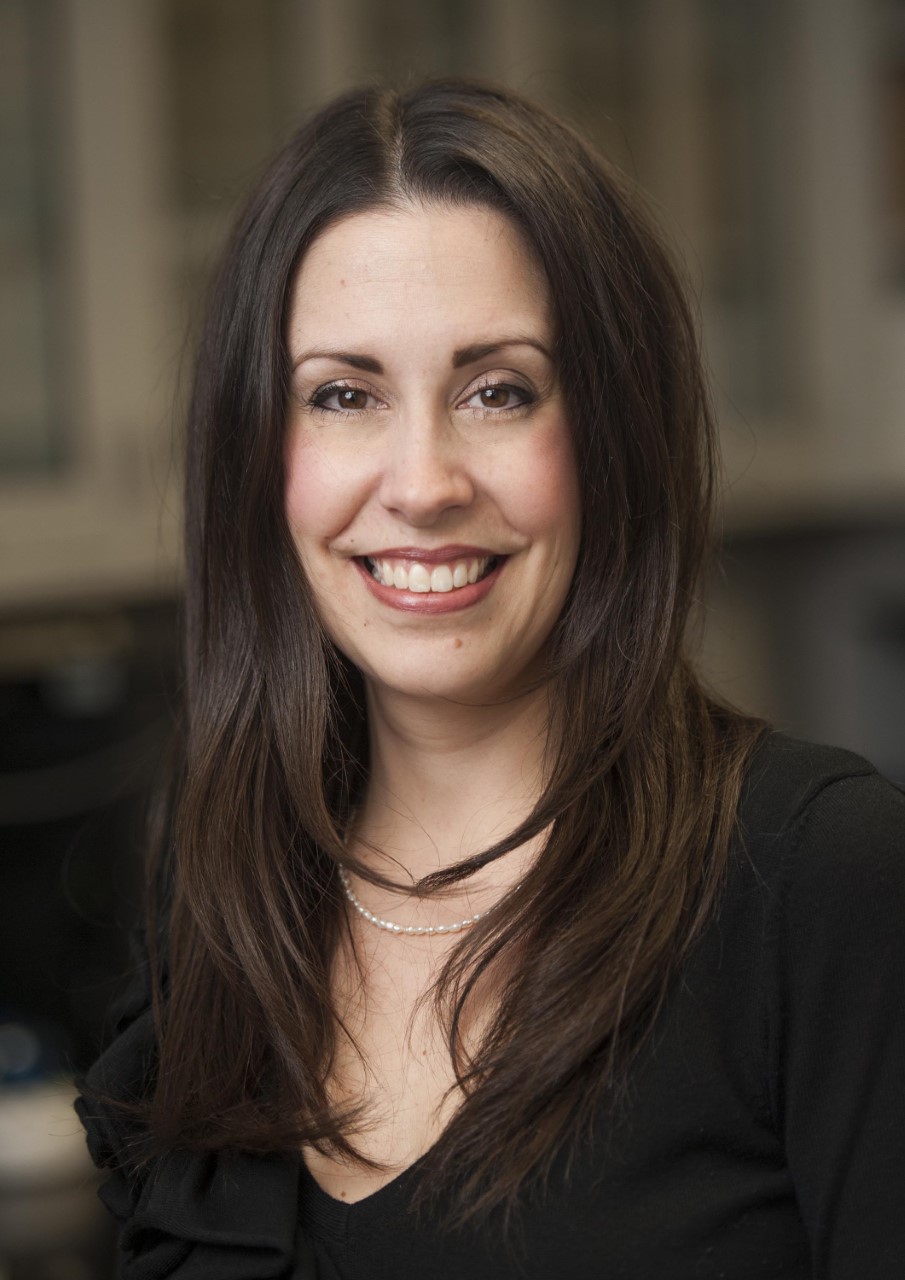 For as long as I can remember, I have loved animals, nature, and learning how things worked. I really started getting interested in a career in biology when I took my first neuroscience course as an undergraduate psychology student. As someone who figured out what she wanted to be when she grew up when she was already grown up and in college, I know the value of a good liberal arts education!
For as long as I can remember, I have loved animals, nature, and learning how things worked. I really started getting interested in a career in biology when I took my first neuroscience course as an undergraduate psychology student. As someone who figured out what she wanted to be when she grew up when she was already grown up and in college, I know the value of a good liberal arts education!
After graduating from Miami University of Ohio with a BA in psychology, I worked with severely mentally ill adults, most of whom also had drug use issues. That led me to want to understand how drugs affect the brain and behavior in a scientific way. I went back to supplement my education with biology and chemistry courses and was soon on my way to earning a PhD in physiology at Kent State University, where I studied the effects of alcohol on circadian (daily) rhythms. From there, I went on to study the molecular and genetic regulation of neuron-glial interactions in alcoholism as a postdoctoral fellow at Mayo Clinic College of Medicine.
I came to IUP in 2013 to establish my own lab focusing on the neurobiology of circadian rhythms and drug addiction. I have written two popular courses in my areas of expertise and have had the pleasure of training more than 30 students in my research lab who have gone on to pursue careers in biomedical science, medicine, psychology, and neuroscience. I am passionate about promoting the inclusion of women and underrepresented groups in STEM fields and academia. I am also excited to continue one of my new favorite things, teaching Science Core in the Honors College.
I want to thank my husband, my family, and my friends—some of the best of which I’ve made here at IUP—for their unwavering support throughout the years. I wouldn’t be here without you!
Michael Schwartz
Theatre, Dance, and Performance
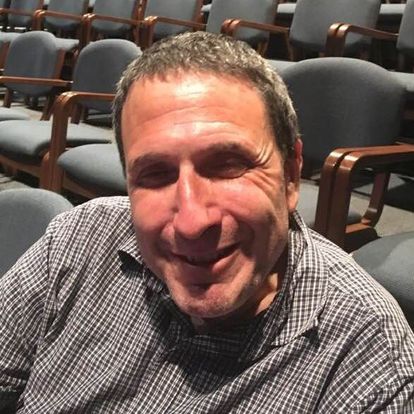 My first clear theatre memory was playing a Martian. In the play, it was my job to show a typical third grader why it was so important to study the solar system. That experience was also my first time disagreeing with a director—I was supposed to say “beep beep” before and after every line to establish my Martian-hood. As a skeptical eight-year-old, I thought it was overkill. Nevertheless, it proved to be an effective introduction to how artists cooperate, work together, and sometimes disagree in the making of what was to become my favorite art form.
My first clear theatre memory was playing a Martian. In the play, it was my job to show a typical third grader why it was so important to study the solar system. That experience was also my first time disagreeing with a director—I was supposed to say “beep beep” before and after every line to establish my Martian-hood. As a skeptical eight-year-old, I thought it was overkill. Nevertheless, it proved to be an effective introduction to how artists cooperate, work together, and sometimes disagree in the making of what was to become my favorite art form.
By the time I arrived at IUP in the fall of 2011, I had spent a lot of years seeking to build bridges between theatre history, literature, practice, and scholarship. What I was thrilled to discover was that I could spend a great deal of my classroom time building those bridges with some of the brightest and liveliest students imaginable. And what I discover and rediscover every school year is how theatre has been, and continues to be, our way to find the highest purpose and become our best selves. The Greeks sought to reach their gods and seek perfection from mortals and immortals alike; one way or another, the search continues through the twenty-first century and beyond.
The theatre and those who contribute to it face new challenges living up to the promises of diversity, inclusion, and equity. These challenges change the way we create, study, and teach theatre and the performing arts. New students each year will continue to learn, and to teach me, how to meet those challenges. What greater opportunity could there be in a job?
Marissa Sweeny
Art and Design
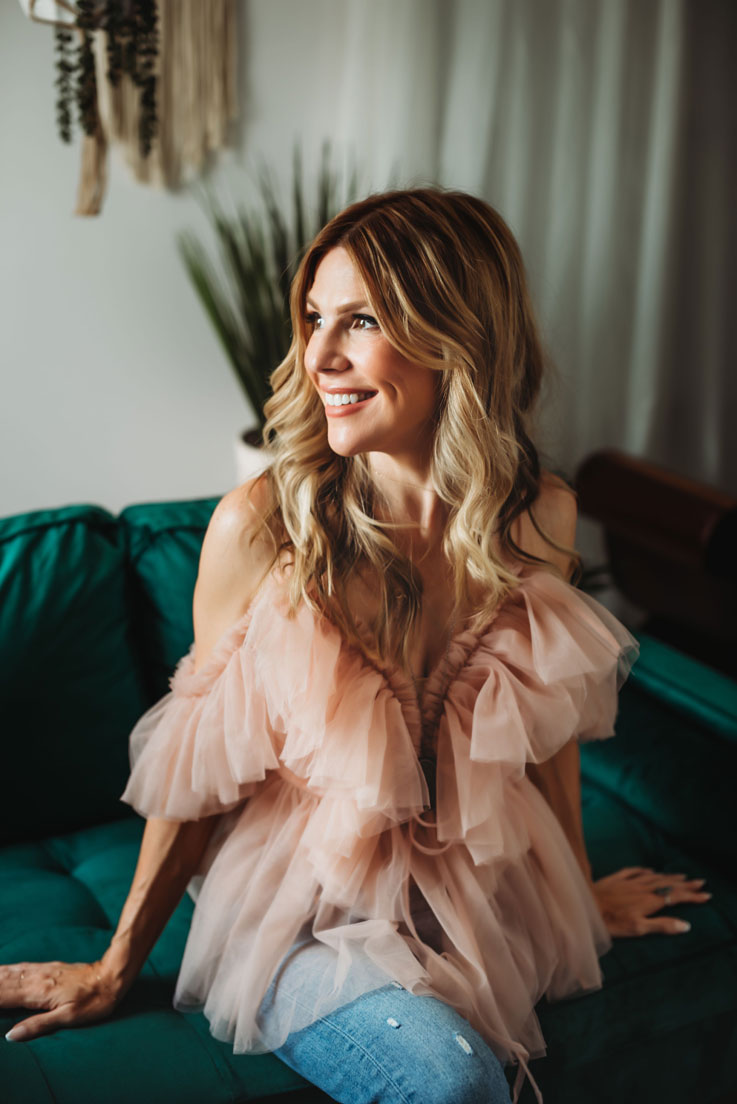 In my work as an artist, teacher, and researcher I am committed to reconceptualizing images of historically marginalized groups of young children and to centering difference through collaborative scholarship, pedagogy and mentoring, and multimedia art making.
In my work as an artist, teacher, and researcher I am committed to reconceptualizing images of historically marginalized groups of young children and to centering difference through collaborative scholarship, pedagogy and mentoring, and multimedia art making.
Postdevelopmental and posthuman theories, Feminist new materialism, and multiliteracies guide my work in community-based early childhood education, negotiated pedagogy, curriculum inquiry, and design. My forthcoming book projects, Children’s Digital Images and Postdevelopmental Approaches to Childhood Digital Arts (co-edited with Mona Sakr), explore potentials of digital media with young children and strive to be inclusive of multiple voices. My collaborative photographic and video work with children has been exhibited in national venues.
In 2021, I received the National Art Education Association Preservice Chapter Sponsor of Excellence award. In 2017, I founded SQUAD Art Studio, an alternative, inclusive multi-site, community-based program dedicated to negotiated arts experiences with young children, caregivers, and preservice educators. I also founded the Scribble Squad, an international research and peer mentoring collaborative for caregivers of young children and academic motherscholars. In 2022, I was elected to the National Art Education Association Research Commission. In 2023, I will serve as an inaugural associate editor of Childhood Art: An International Journal of Research.
Christian Vaccaro
Sociology
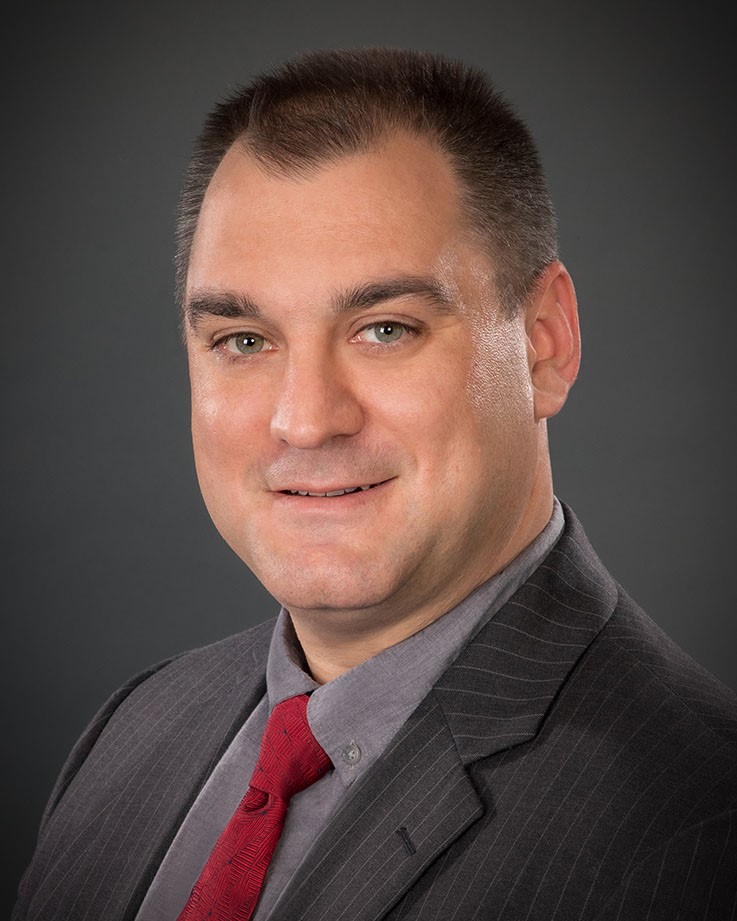 What fascinates me is how social science helps us understand why the same person can behave radically different between one situation and the next. This is because the demands of groups and social contexts are so influential, they can accurately predict behavior. They can be so powerful that they even override our deepest beliefs, values, and judgments.
What fascinates me is how social science helps us understand why the same person can behave radically different between one situation and the next. This is because the demands of groups and social contexts are so influential, they can accurately predict behavior. They can be so powerful that they even override our deepest beliefs, values, and judgments.
My appreciation of these social facts shapes my academic career and focuses my research on how social interactions between people in real-world settings create patterned and stable sets of expectations and demands which shape how people feel and emote, see themselves and others, the decisions they make, and—in turn—how they behave.
My research in this area has taken me to a lot of fascinating places and to study lots of interesting people; from grisly mixed martial arts fighters in dingy gyms striving to be the best, to constituents lobbying politicians on timely issues, to role players dressed in medieval costume and equipped with foam weapons seeking a taste of glory, to police, prosecutors, and first responders ensconced in efforts to prevent opioid overdoses, to marijuana users attempting to reduce the likelihood of their arrest or robbery during a drug transaction, and to executives and managers in the nonprofit and public sector engaged in leadership efforts of all types. Learning from these individuals and contexts, varied and unique as they are, helps to paint a picture of how people interacting with each other creates social expectations and demands and sustains contexts that exert further behavioral influence on them more generally.
I love the work I do because the hopeful takeaway one can get from it is that when you understand these forces—you can exert a degree of influence over them. And that is an incredibly powerful lesson I will always enjoy sharing with my students at IUP.
Yasong Wang
Management
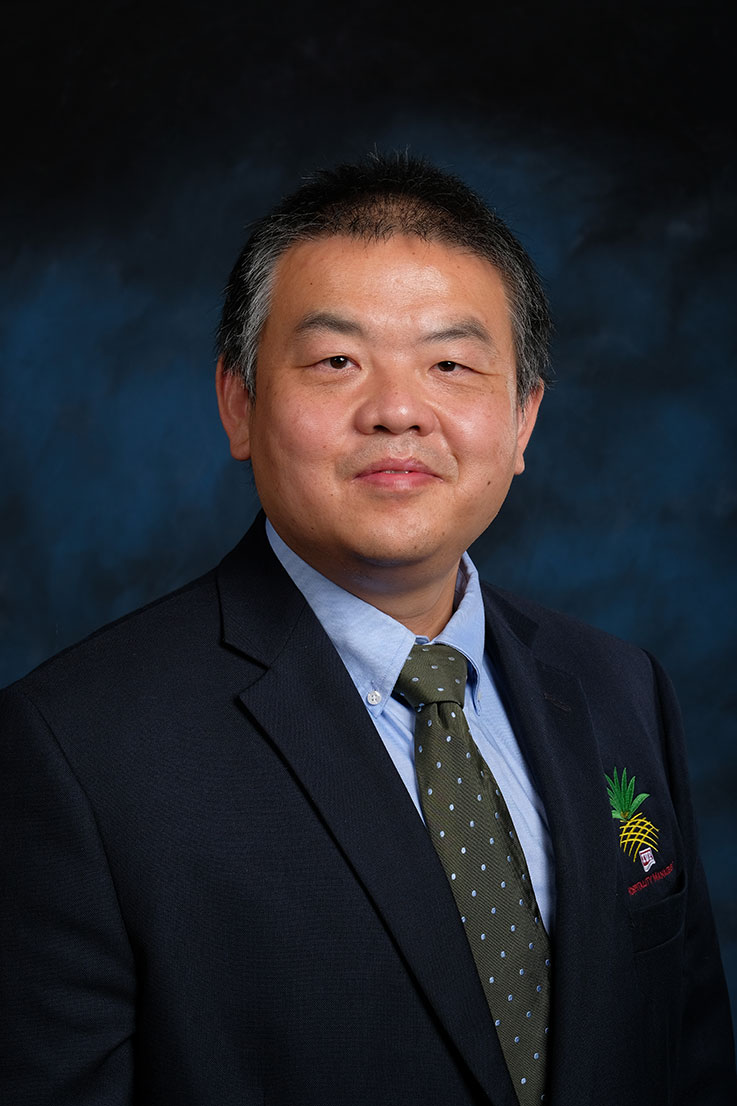 I love traveling. The need to explore is in my DNA! As my peers started their preschool life, I had wandered around my mother’s hometown with my grandma over 600 miles away from my parents. Such early childhood experiences have shaped my journey of life. To extend the scope of my expedition, I majored in tourism management for my undergraduate degree and pursued other career opportunities in the travel and hospitality industries for over six years in China. With the solid academic foundation and invaluable first-hand industrial experience, my intense craving for delving into the unknown lands of the world drove me to the United States for further study. After earning my master’s and PhD degrees from universities up and down the East Coast, I set off on a new leg of my journey and started my academic life at Indiana University of Pennsylvania.
I love traveling. The need to explore is in my DNA! As my peers started their preschool life, I had wandered around my mother’s hometown with my grandma over 600 miles away from my parents. Such early childhood experiences have shaped my journey of life. To extend the scope of my expedition, I majored in tourism management for my undergraduate degree and pursued other career opportunities in the travel and hospitality industries for over six years in China. With the solid academic foundation and invaluable first-hand industrial experience, my intense craving for delving into the unknown lands of the world drove me to the United States for further study. After earning my master’s and PhD degrees from universities up and down the East Coast, I set off on a new leg of my journey and started my academic life at Indiana University of Pennsylvania.
In this new part of my life journey, I have been guided by my mentors, inspired by my colleagues, and supported by my family to become a seasoned professor. In teaching, as an international faculty, I have forced myself to venture away from my cultural bubbles to deliver effective learning experiences. My ample experience and interests in diversified segments of industry empower me to develop and teach a variety of major courses. My expertise in teaching has made me earn teaching opportunities overseas. In research, my passion for tourism studies has enabled me to publish several papers in top-rank journals, present at conferences as a best paper recipient, and earn grants for research. In service, I have applied my proficiency in the tourism field to facilitate local community development. I have supported students by advising their organizations. And, I have also served on various committees on and off campus. No doubt, what I have achieved is just the beginning of a new journey and my adventure will continue.
Emily Wender
English
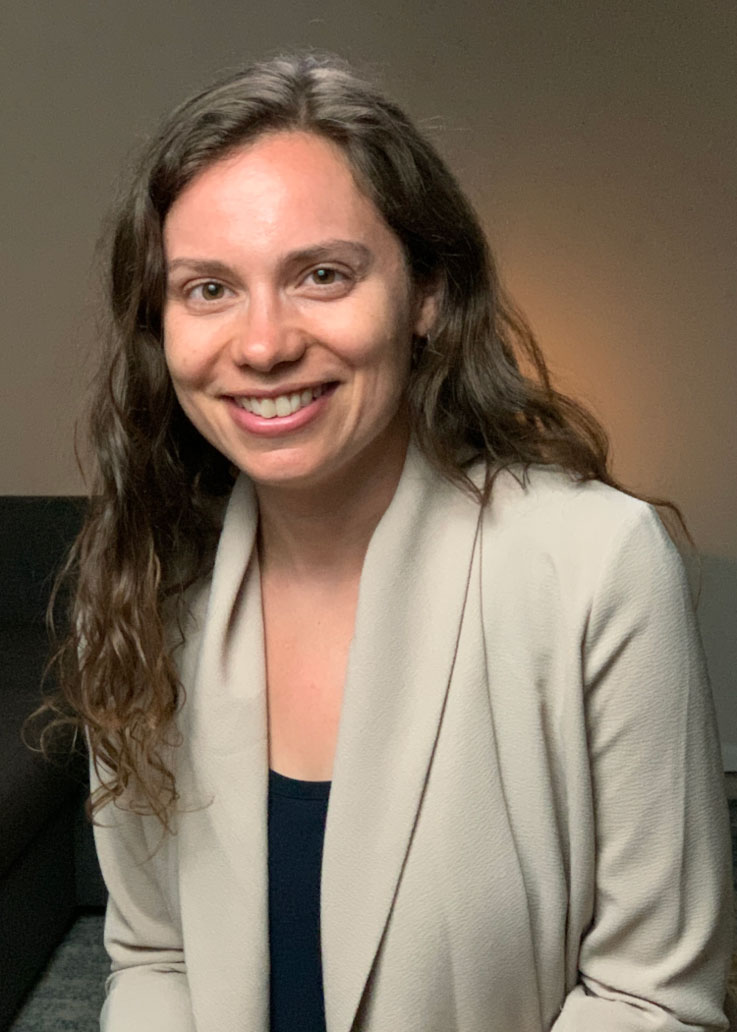 As the oldest of six children, I have always been teaching someone something, from how to walk home from school to how to play checkers. As an English education teacher educator, I now have one of the most amazing jobs in the world: helping guide and grow emerging educators. Prior to IUP, I taught elementary, middle, and high school students, and each time I changed levels, I was surprised by how much carryover there was from one to the next. Although every context and student is unique, good teaching requires the same ingredients: knowing your content, knowing your students, and being willing to adapt.
As the oldest of six children, I have always been teaching someone something, from how to walk home from school to how to play checkers. As an English education teacher educator, I now have one of the most amazing jobs in the world: helping guide and grow emerging educators. Prior to IUP, I taught elementary, middle, and high school students, and each time I changed levels, I was surprised by how much carryover there was from one to the next. Although every context and student is unique, good teaching requires the same ingredients: knowing your content, knowing your students, and being willing to adapt.
Now in my work preparing teacher candidates at IUP, I draw on my prior roles as a K-12 educator daily. Most of all, though, I draw on the same drive that compelled me then, a drive to value students’ lived experiences and identities and to push them to gain meaningful literacy skills, experiences, and motivations. I believe literacy can enhance lives at any age and in any circumstance, and that foundation has served me at all stages of my career.
My research tends to emerge from whatever is troubling or exciting me as a teacher educator. Recently those topics have included addressing the impacts of school shootings on teacher candidates, preparing teacher candidates for the emotional labor of the profession, and diversifying the teacher workforce. As a fan and scholar of young adult literature, I have also published on the significance of visual literacy and graphic novels in the English language arts classroom, methods for teaching multicultural young adult literature, and the role of young adult literature in helping teacher candidates develop racial literacy.
I am proud to be part of a long and rich tradition of teacher education at IUP.